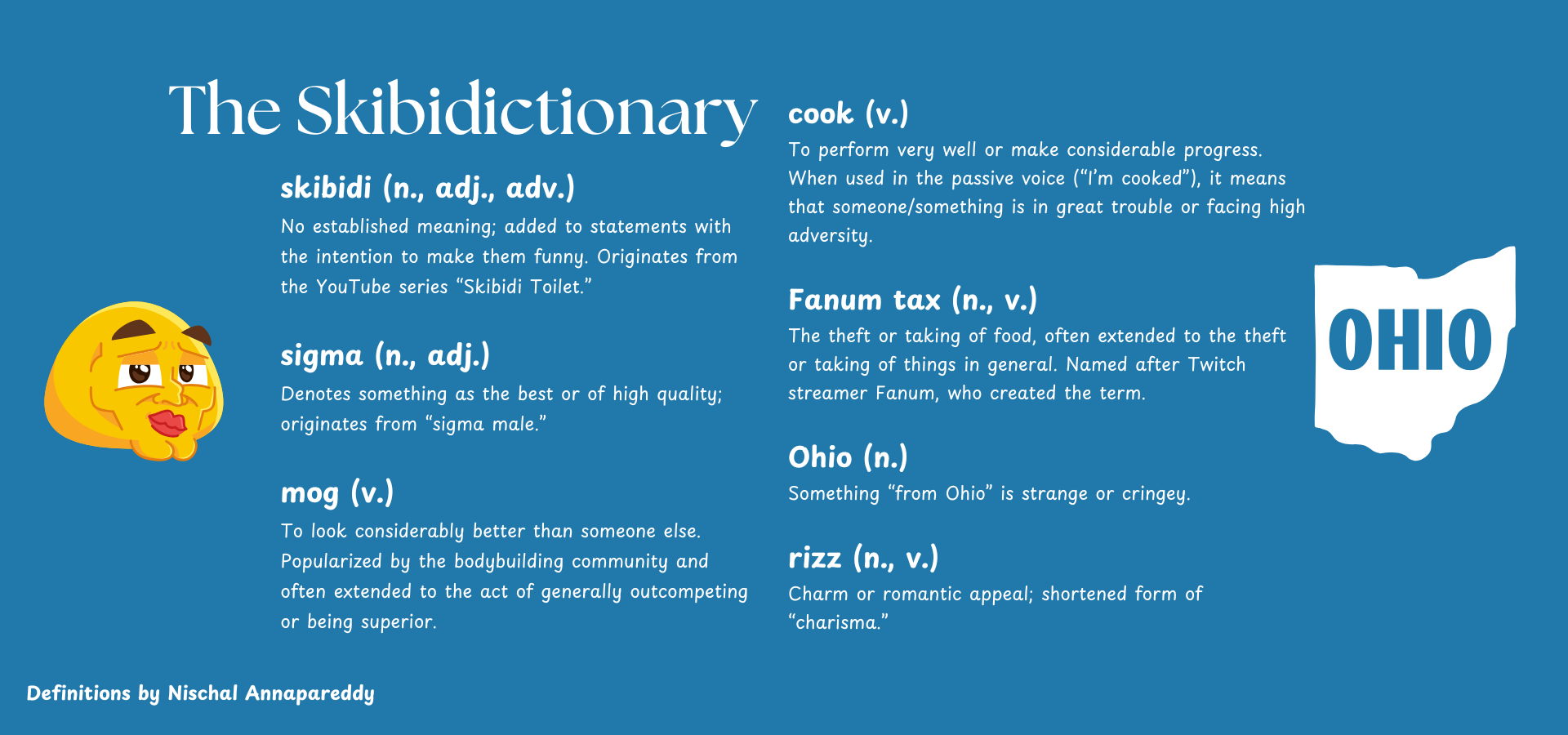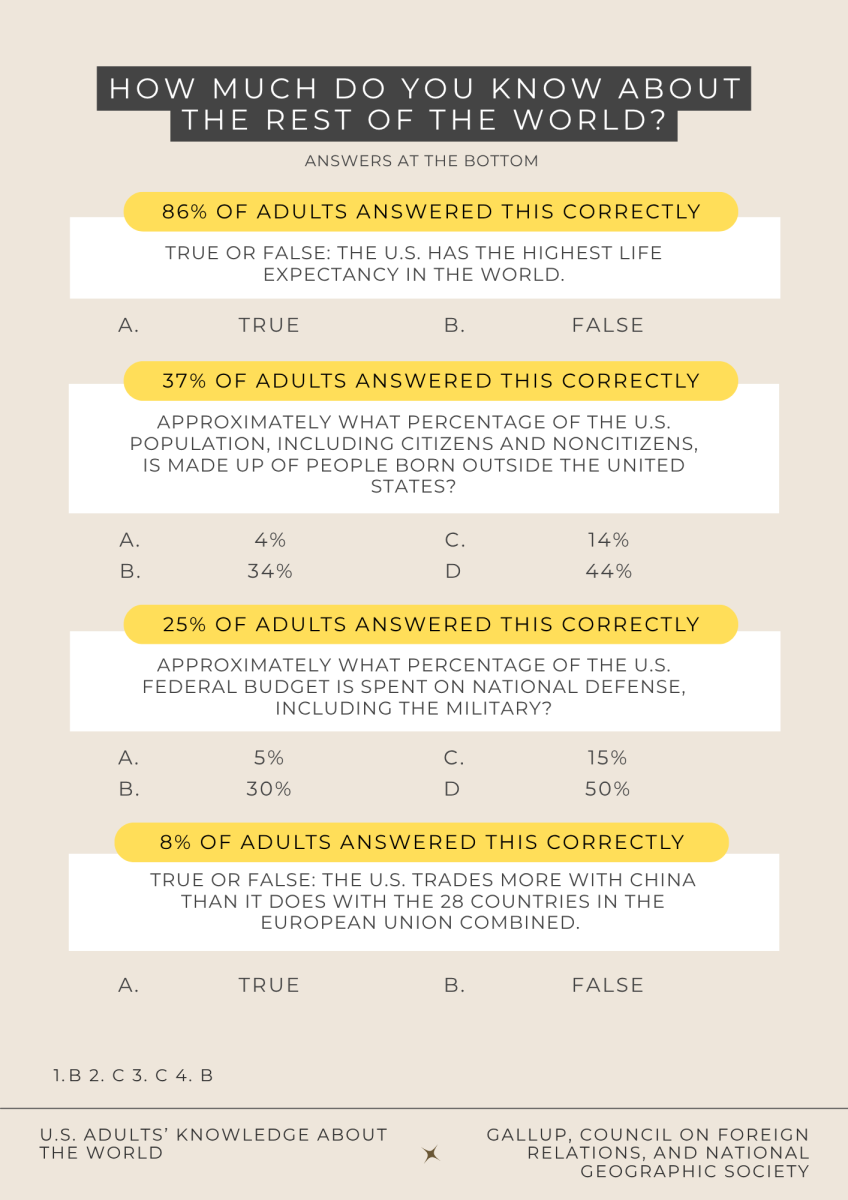“Principal: Kai Cenat”
For a few days, Wikipedia users were met with this information when they looked up Herndon High School. The principal being Kai Cenat– a popular Twitch streamer– was not the only problem, however; the article was riddled with inaccuracies, including a claim that the school’s mascot was the “Evil Jonkler.”
The language used in the page was not random; it fell under what’s known as brainrot, a unique category of Generation Alpha (those born after 2010) slang which also fell into use by Generation Z (born between 1991-2009). Brainrot continues to seep into many aspects of life, from motivating Wikipedia trolls to popularizing the YouTube series Skibidi Toilet.
While many dismiss brainrot as a mindless trend which holds no true influence in society other than creating strange words, the influence of brainrot on trends and culture is complex and frequently underestimated.

A brief introduction to brainrot
Collins Dictionary defines brainrot as mindless internet content that doesn’t encourage thinking. However, the term is developing another meaning: a Gen Alpha subculture and set of terms inspired by the internet, with sources ranging from YouTube videos to online communities.
For instance, one of the most important influences on Gen Alpha’s slang is Skibidi Toilet, a web series originating from YouTube that gave rise to the term “skibidi.”* Other sources of Gen Alpha slang include Twitch streamer Fanum coining the term “Fanum tax”* according to KnowYourMeme, and the looksmaxxing internet community inspiring a verb of the same name. After encountering them on the internet, members of Gen Z began to adopt these terms as well.
Another defining element of brainrot is its absurd nature. Absurdity has become a common theme in younger people’s humor, with members of Gen Z finding absurd memes funnier than their more logical counterparts according to a 2021 study by Chloe Partlow and Patricia Talarczyk. This is apparent in terms such as “skibidi,” which don’t contribute any concrete meaning, being added only because their presence is deemed funny.
Brainrot today
It’s long been established that developments in the English language can come from virtually anywhere, with the sandwich taking its name from the 4th Earl of Sandwich who, according to the Oxford English Dictionary, spent one full day at a gaming table living only off of sandwiches and the words “bedroom,” “downstairs” and “eyeball” all being created by William Shakespeare for his plays according to the Shakespeare Birthplace Trust. This can also apply to slang, with brainrot and other slang having the potential to bring new words and phrases to the English language.
Apart from linguistic development, brainrot has also generated profits for many through viral marketing, which brings attention to a product through social media trends. For example, content creator Olajide Olayinka Williams “JJ” Olatunji, co-owner of snack company Lunchly (which sells snack kits as a competitor of Lunchables) and better known as KSI, released the song “Thick of It” on Oct. 3. The song was ridiculed by many who thought it sounded funny, with users of Instagram Reels and TikTok creating parodies of it with brainrot-related lyrics. Despite this backlash, the parodies ultimately resulted in Lunchly products gaining attention online, and brainrot allowed KSI to profit from the ridicule of his song.
Understandably, it can be frustrating to repeatedly hear young people wonder if they’re “cooked*” or announce that they have “skibidi rizz.*” However, these phrases must be appreciated for what they are: pivotal parts of the development of communication with the potential to have massive impacts on everyday life. In the words of some of Instagram Reels’ greatest users, we must build our future, brick by brick.









